10 Questions to Ask When Hiring Residential Roofing Contractors

Is your roof looking old and worn? Thinking about getting it fixed or replaced? Before you rush to hire someone, there are some key things you need to know. Choosing the right person to work on your roof is important. It’s not just about finding someone who can do the job – it’s about finding someone you can trust with your home.
Your roof keeps you safe and dry. It protects everything inside your house. So when it’s time for roof work, you want to make sure you’re dealing with true experts. But how can you tell who’s good and who’s not?
In this guide, we’ll walk you through 10 must-ask questions for residential roofing contractors. These questions will help you spot the real pros from the not-so-great ones.
1. Are You a Licensed and Insured Roofing Contractor?

When hiring a roofing contractor, the first question to ask is about their licensing and insurance status.
Why Licensing Matters
A licensed roofing contractor has met the required standards set by local authorities. This ensures they are knowledgeable about building codes and regulations specific to your area. Hiring licensed local roofers helps protect you from unqualified individuals who might provide subpar work.
The Importance of Insurance
Insurance is crucial for protecting homeowners from potential liabilities. A reputable roofing company should have both worker’s compensation and liability insurance. This coverage protects you in case of accidents or damage to your property during the project.
2. How Long Have You Been in the Roofing Business?
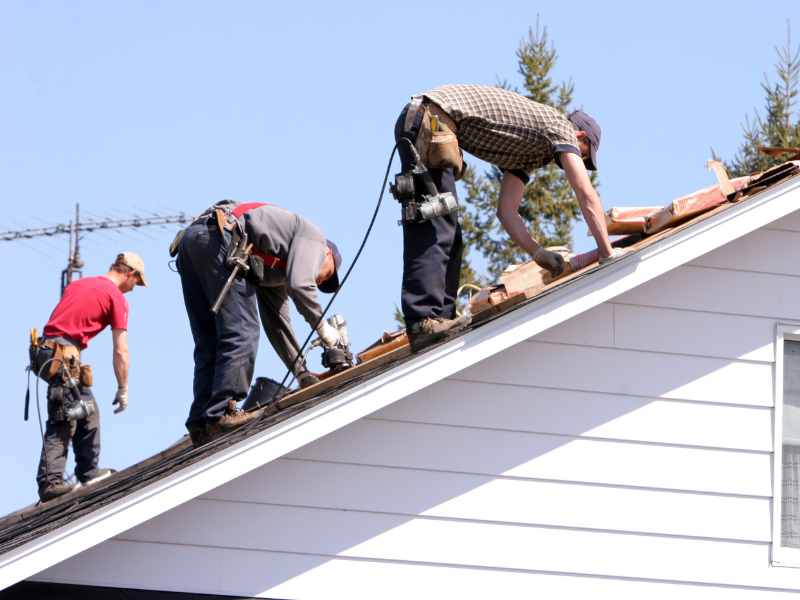
Experience is a key factor when selecting a roofing contractor.
The Value of Experience
An established roofing company with years of experience is likely to have a proven track record of quality workmanship and satisfied customers. Experienced contractors are familiar with various roofing materials, such as shingles and tiles, and can provide reliable advice on the best options for your home.
Avoiding Common Pitfalls
Contractors with extensive experience can anticipate and address potential issues before they become major problems. They are also more likely to have established relationships with suppliers, ensuring timely delivery of materials and possibly securing better rates for your next project.
3. Can You Provide References or Reviews from Past Projects?

Checking references and reviews is a vital step in the hiring process.
Why References Matter
References provide insight into the contractor’s past performance and reliability. A reputable roofing contractor should willingly provide references from recent projects.
How to Evaluate Reviews
Online reviews and testimonials can offer additional perspectives on the contractor’s work quality and customer service. Look for patterns in feedback, such as consistent praise for completed home remodeling projects or recurring complaints about specific issues.
Contacting Previous Clients
Speaking directly with past clients can give you a firsthand account of their experience. Ask about the quality of work, adherence to timelines, and how the contractor handled any issues that arose during the project.
4. What Types of Roofing Materials Do You Specialize In?
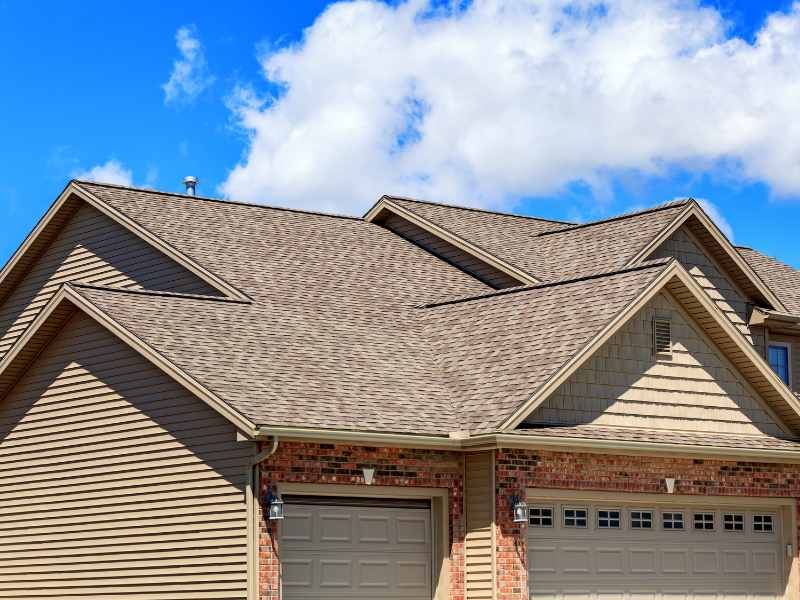
Different roofing contractors may specialize in various materials.
Common Roofing Materials
- Shingles: Popular for their versatility and cost-effectiveness.
- Metal: Known for durability and longevity.
- Tile: Offers a distinctive look and excellent durability.
Importance of Specialization
Choosing a contractor who specializes in the specific material you want for your roof ensures they have the expertise needed for proper installation. This can impact the longevity and performance of your new roof.
ALSO READ: Things to Look For In A Roofing Contractor in Plymouth
5. Do You Offer a Warranty on Your Roofing Services?
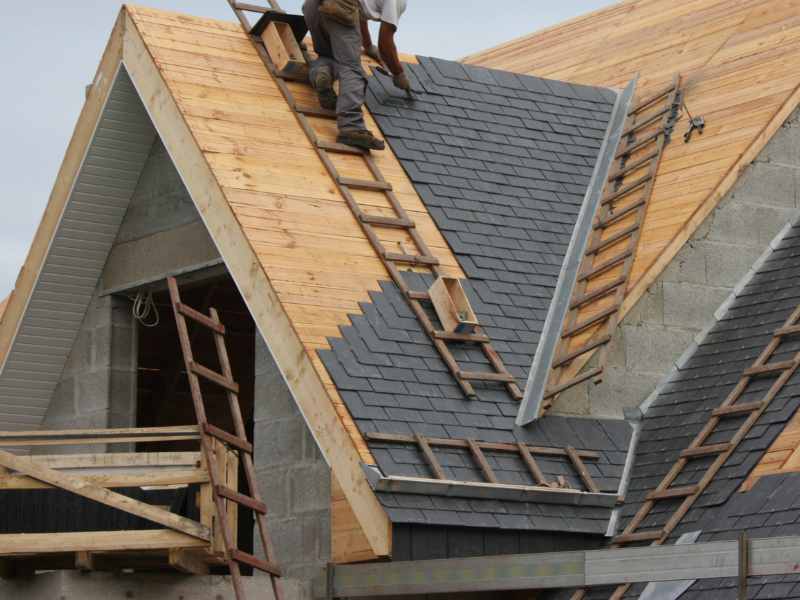
A warranty provides peace of mind and protection for your investment.
Types of Warranties
- Workmanship Warranty: Covers issues related to the installation process.
- Material Warranty: Covers defects in the roofing materials used.
Understanding Warranty Coverage
Ensure you understand the specifics of the warranty offered. Ask about the duration of the coverage, what is included, and any conditions that might void the warranty. A reliable roofing company should provide clear and detailed information about their warranties.
6. Will You Provide a Written Estimate?

Obtaining a detailed, written estimate is essential for transparency and budgeting.
Importance of a Written Estimate
A written estimate outlines the cost of the roofing project, including materials, labor, and any additional expenses. It serves as a contract that protects both the homeowner and the roofing contractor by clearly defining the scope of work and pricing.
What Should Be Included
- Materials: Detailed list of roofing materials, such as a shingle and insulation.
- Labor: Breakdown of labor costs for each phase of the project.
- Timeline: Estimated start and completion dates.
- Additional Costs: Potential costs for unforeseen issues or extra services like gutter installation and waterproofing.
Comparing Estimates
Request estimates from multiple roofing contractors to compare pricing, services, and timelines. This will help you make an informed decision and avoid potential overcharges.
7. How Do You Handle Unexpected Issues During the Roof Replacement Project?

Unexpected issues can arise during any roofing project, making it crucial to understand how your contractor will address them.
Common Unexpected Issues
- Water Damage: Hidden water damage discovered during the roof replacement.
- Structural Problems: Underlying structural issues that need fixing before new roof installation.
- Weather Delays: How weather conditions might impact the project timeline.
Contractor’s Plan
A professional roofing contractor should have a plan for addressing unexpected problems. They should communicate these issues promptly and provide solutions along with any additional costs involved.
8. What Steps Will You Take to Protect My Property?
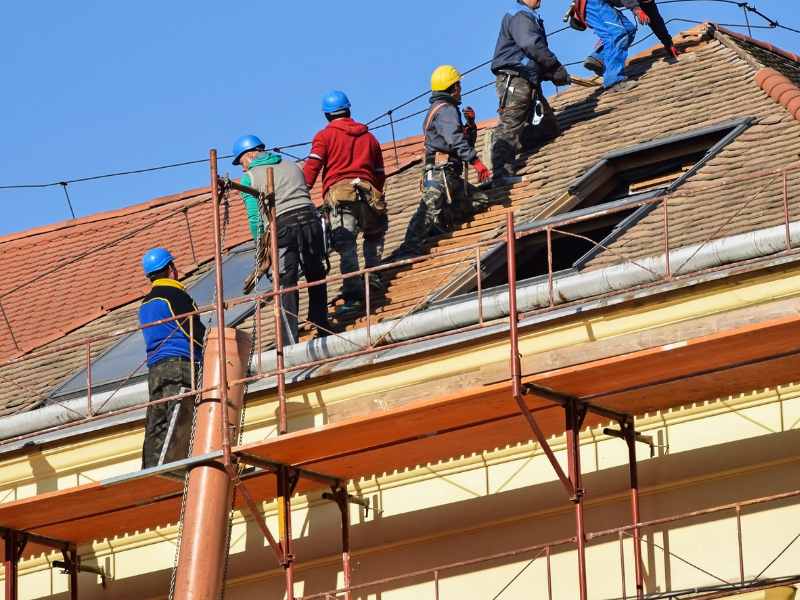
Roofing projects can cause damage to other parts of your property if not managed properly.
Protecting Landscaping and Property
- Landscaping: Measures to protect your garden, trees, and lawn.
- Windows and Siding: Precautions to prevent damage to windows and siding during the roofing process.
- Gutters: Ensuring gutters are protected and properly functioning post-installation.
Cleanup and Debris Removal
A reputable roofing company should include cleanup and debris removal as part of their service. This ensures your property is left clean and safe after the project is completed.
9. Can You Provide Proof of Worker’s Compensation and Liability Insurance?
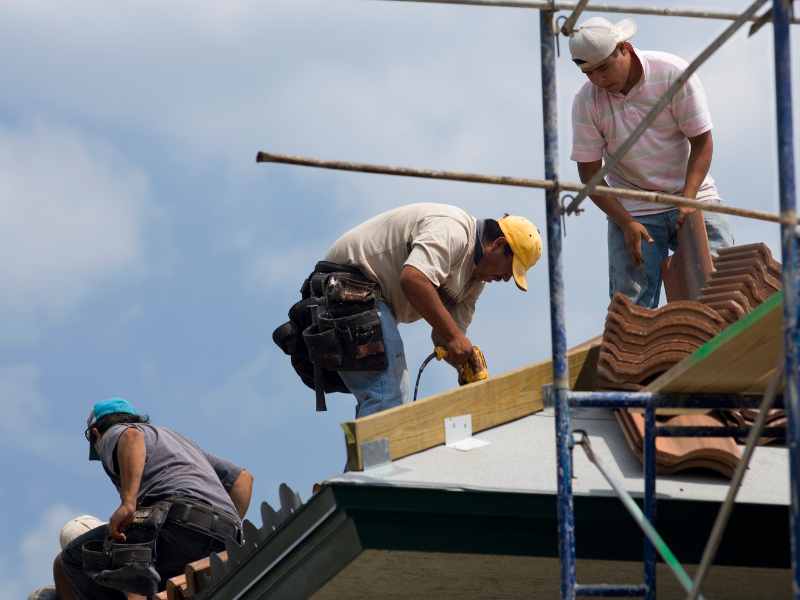
Verifying insurance coverage is crucial for protecting yourself from potential legal and financial liabilities.
Worker’s Compensation Insurance
This insurance covers medical expenses and lost wages for workers injured on the job. It protects homeowners from being held responsible for these costs.
Liability Insurance
Liability insurance covers any damage caused to your property during the roofing project. Ask for proof of insurance and verify its validity before hiring the contractor.
10. What Is Your Timeline for Completing the Roofs Replacement?
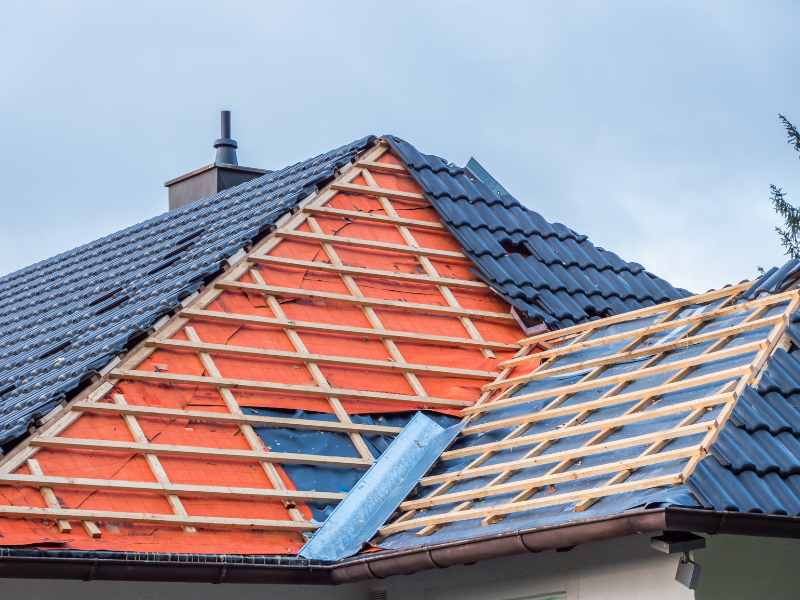
Understanding the project timeline helps set expectations and ensures the roof replacement is completed on schedule.
Importance of a Clear Timeline
A detailed timeline includes the start date, major milestones, and the estimated completion date. It helps homeowners plan accordingly and ensures the roofing contractor commits to a schedule.
Factors Affecting the Timeline
- Weather Conditions: How weather can delay the project.
- Material Availability: Ensuring timely delivery of roofing materials.
- Project Size: Larger projects might take longer to complete.
Commitment to Deadlines
A reliable contractor should provide a realistic timeline and communicate any potential delays promptly. This ensures transparency and helps avoid misunderstandings.
In Summary
Recapping the importance of asking these essential questions can greatly impact the success of your roofing project. By ensuring your roofing contractor is licensed, insured, experienced, and transparent, you can avoid common pitfalls and achieve a high-quality roof replacement.
If you’re ready to hire a professional roofer, contact Plymouth Siding and Roofing for a free consultation. We offer comprehensive roofing services, including roof inspections, replacements, and installations. Contact us today to get started on your next home remodeling project.